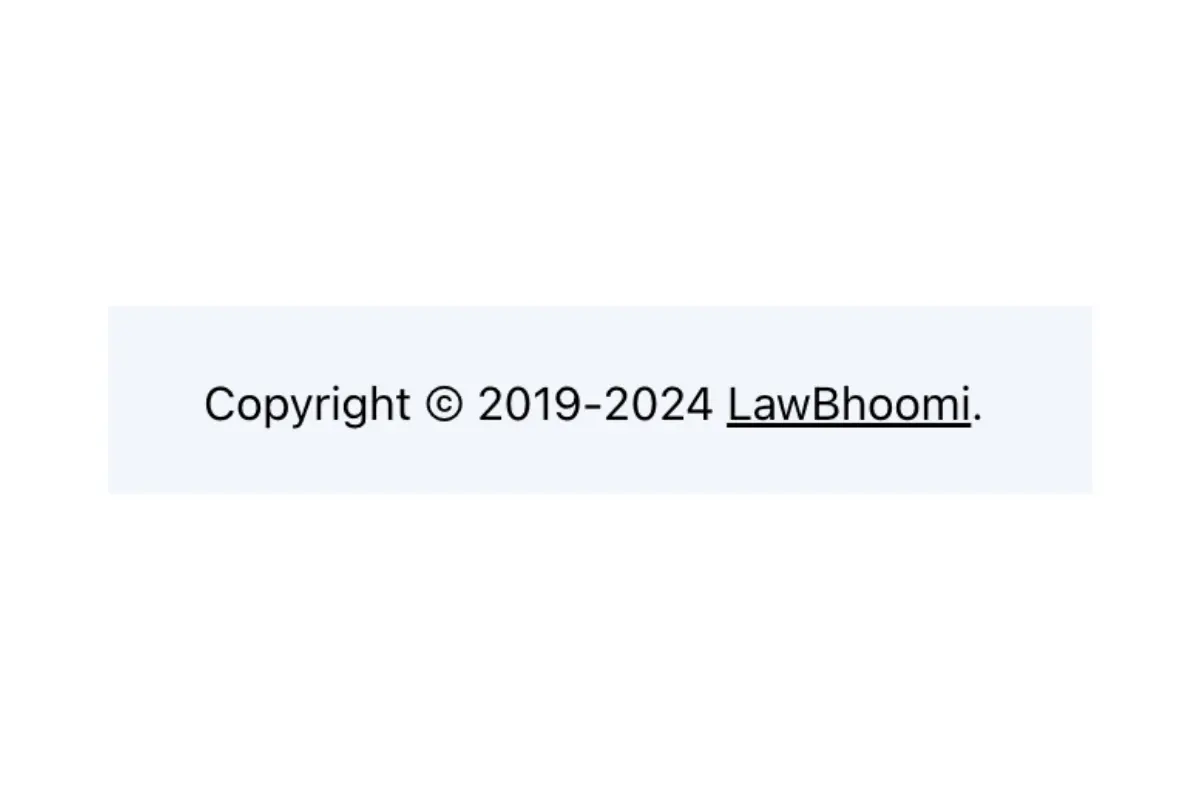Why are Copyright Clauses in Website Footers Important?

When you visit a website, you probably scroll past the footer without much thought. It’s easy to overlook the small text at the bottom of the page, often filled with legal jargon, links to privacy policies, and the all-important copyright clause. But while it might seem like a minor detail, the copyright clause in your website footer plays an important role in protecting your content and your business.
In this article, we will explore the relevance of including a copyright clause in your website footer, why it matters, and the potential consequences of neglecting this seemingly small but vital component.
Copyright and Its Implications
Before diving into the importance of the copyright clause in your website footer, it’s essential to understand what copyright is. Copyright is a form of intellectual property protection that grants the creator of an original work exclusive rights to its use and distribution. This applies to a wide range of creative works, including text, images, videos, and other content published on your website.
When you create original content for your website, that content is automatically protected by copyright law, giving you the legal authority to control how it is used. This means you can prevent others from copying, distributing, or modifying your work without your permission. However, the copyright clause in your website footer serves as a public declaration of your rights and reinforces the protection of your content.
Why the Copyright Clause Matters?
- Legal Protection The primary purpose of the copyright clause is to assert your legal ownership over the content on your website. By explicitly stating that the content is copyrighted, you are putting potential infringers on notice that you are aware of your rights and are prepared to enforce them. This can deter would-be content thieves who might otherwise assume that your work is fair game.
- Establishing Credibility Including a copyright clause in your footer signals to visitors that your website is professional and that you take your intellectual property seriously. This can enhance your credibility and build trust with your audience, which is especially important if you are running a business or providing valuable information through your site.
- Preventing Unauthorised Use The internet is vast, and the potential for unauthorised use of your content is high. Without a copyright clause, some individuals or companies might assume that they can freely use your content without repercussions. While copyright law still protects you, the absence of a visible copyright notice might make it harder to pursue legal action against infringers.
- Supporting SEO and Brand Identity Protecting your original content is not just about legal rights—it’s also about maintaining your brand’s identity and reputation. When others use your content without permission, they dilute your brand and potentially harm your search engine optimisation (SEO) efforts. The copyright clause helps safeguard your content’s originality, ensuring that your brand remains unique and recognisable.
- Avoiding Content Scraping Content scraping is a growing problem on the internet, where bots automatically copy content from websites without permission. This content is then reposted on other sites, often to generate ad revenue. A copyright clause in your footer can serve as a deterrent to content scrapers, who may move on to easier targets that don’t explicitly protect their content.
What Happens If You Don’t Include a Copyright Clause?
Many website owners underestimate the importance of the copyright clause, believing that their content is automatically protected by law. While this is true to an extent, failing to include a copyright clause can lead to several pain points that could have been easily avoided.
Increased Risk of Content Theft
Without a copyright clause, your content is more vulnerable to theft. While copyright laws still protect your work, the absence of a clear declaration of ownership can make it easier for others to claim ignorance if they misuse your content. This can lead to lengthy and costly legal battles that could have been avoided with a simple footer statement.
Difficulty in Enforcing Your Rights
If your content is stolen and used without your permission, pursuing legal action can be more challenging if you haven’t included a copyright clause. Courts may view the lack of a visible copyright notice as a sign that you did not take adequate steps to protect your content, potentially weakening your case.
Damage to Your Brand
When others use your content without authorisation, it can harm your brand’s reputation. Visitors who encounter your content on other websites might associate it with those sites instead of your brand. This can dilute your brand identity and reduce the impact of your marketing efforts.
Loss of Revenue
For businesses, content is often a valuable asset that drives traffic and generates leads. If your content is copied and used elsewhere, you could lose potential customers and revenue. A copyright clause helps protect your investment in content creation, ensuring that only you benefit from its use.
SEO Consequences
Duplicate content can negatively impact your website’s SEO. Search engines like Google may penalise sites with identical content, which can lead to lower rankings and reduced visibility. By including a copyright clause, you discourage others from copying your content, helping to maintain your site’s SEO performance.
How to Properly Include a Copyright Clause
Including a copyright clause in your website footer is straightforward, but it’s essential to do it correctly. Here are some tips:
- Use the Correct Language Your copyright clause should be clear and concise. A typical copyright notice includes the copyright symbol (©), the year of publication, and the name of the copyright owner. For example: “© 2024 Your Company Name. All rights reserved.”
- Update the Year Regularly Make sure to update the copyright year in your footer annually. This shows that your website is actively maintained and that your content is current. If your site includes content from multiple years, you can use a range, such as “© 2020-2024 Your Company Name. All rights reserved.”
- Include All Relevant Content Your copyright clause should cover all the content on your website, including text, images, videos, and other media. You might also want to include a statement specifying that unauthorised use of any content is prohibited.
- Consider Adding a Trademark Notice If your brand name, logo, or other identifiers are trademarked, consider adding a trademark notice in your footer alongside the copyright clause. This further strengthens your legal protections.
A Small Step with Big Impacts
The copyright clause in your website footer might seem like a minor detail, but its relevance cannot be overstated. It serves as a critical line of defence against content theft, unauthorised use, and potential legal headaches. By taking a few minutes to include a well-crafted copyright clause, you can protect your intellectual property, establish your credibility, and ensure that your brand remains strong and unique in a crowded online landscape.
In the end, the pain of neglecting this small yet significant step far outweighs the effort required to implement it. Protect your content, protect your brand, and make sure that every piece of original work you create is rightfully yours to control and benefit from.
Calling all Marketers!
🔴 Are you tired of searching for the perfect job?
Whether you're into content writing, SEO, social media, graphic design, or video editing—full-time, freelance, remote, or onsite—we've got your back!
👉 We post over 30 job opportunities every single day. Yes, every day (all verified).
Join the most reliable and fastest-growing community out there! ❤️
And guess what? It’s FREE 🤑
✅ Join our WhatsApp Group (Click Here) and Telegram Channel (Click Here) today for instant updates.






